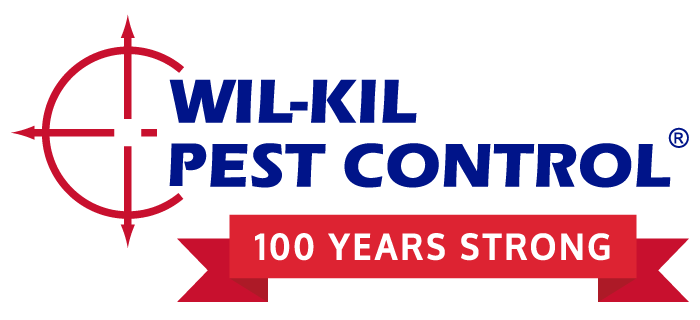Wisconsin State Journal
Karen Rivedal
July 27th, 2014
Customer testimonials are notoriously hard to come by in Shane McCoy’s industry.
No matter how good a job his Sun Prairie business Wil-Kil Pest Control might have done at clearing up that ant infestation, killing those cockroaches or rousting that raccoon from the rafters, it’s only the very rare restaurant, warehouse, dormitory, hospital, food plant or apartment building manager who will want anyone to know about it.
Get A Free Quote
That’s true regardless of how common the problems are across the commercial building sector, said McCoy, not to mention in some homes, where the company also provides various eradication treatments.
“Everybody deals with it,” said McCoy, 42, a member of Wil-Kil’s senior management who’s in charge of quality control and technical training for the company.
“But we have confidentiality statements that we sign with our clients,” he added. “We deal with sensitive clients. People don’t want it to look like a pest control person has been there, so we’ll park in back or get there early in the morning, before customers arrive.”
With 19 years of experience in pest control removal and prevention, McCoy joined Wil-Kil Pest Control in 2007, after 12 years as a pest management technician in the Air Force, including four years as an instructor.
At Wil-Kil, the state’s largest pest control company, McCoy regularly leads the company’s Bed Bug Boot Camps, seminars providing tips on prevention and treatment for the tiny but troublesome insect, for executives in the property management, real estate, hospitality, education, health care and other sectors. Wil-Kil also was the state’s first pest control company to use trained dogs to detect bed bug infestations, according to the company.
Pest control services were a $5.78 billion business in the U.S. last year, up nearly 5 percent, or $273 million, from 2012, according to Pest Control Technology, a leading trade publication for the industry.
The publication ranked Wil-Kil as No. 38 on its list of the 100 largest pest management companies, based on revenues, with $18.25 million in 2013, a 6 percent increase from 2012, McCoy said. The only other Wisconsin company on the list was New Berlin’s Batzner Services , which was 60th.
In addition to five offices in Wisconsin, Wil-Kil employs 110 traveling technicians who develop and monitor plans for residential and commercial clients in Wisconsin, Minnesota, northern Illinois, northeast Iowa and the upper peninsula of Michigan.
Q. What pests do you get the most calls about?
A. The biggest calls that we get are for ants. We also get a lot of calls on cockroaches, bed bugs, rats and mice — and especially wasps and bees. That’s a huge call for us. For non-insects, it would be raccoons.
Seasonally, in the fall time we have the Asian lady beetles and the box elder bugs. September is our busiest time of the year because of (the emergence) of those over-wintering pests. I get more millipede calls than centipedes, and we get a lot of spider calls. Nobody likes to have spiders around. That’s a huge call.
We also get calls on woodchucks and skunks, and every once in a while we get a possum, but that’s pretty rare. We do get bat calls periodically, like if one is hanging out right on the front entrance of a bank.
Q. Is there a good way to define what a pest is?
A. The definition of a pest is something that’s not where it should be. A snake in its natural habitat is beneficial. But if it comes into our garages or our homes, then it becomes a pest. We also try not to harm beneficial insects. Honey bees are very beneficial, but sometimes they become a pest.
What happens is the queen will fail, and the rest of the colony will move to another site. It’s during that movement to another site that they sometimes go to places that are near us, where we don’t want them. But they’re only going to be there a couple of days, so sometimes our job is to talk some of our clients down off the ledge. We just tell them to give it a couple of days and the swarm will leave.
Q. What are other non-toxic ways you try to solve pest problems? Rather than spraying pesticides?
A. Our philosophy is the more controls you put on the situation, the better off you’re going to be. We don’t want to rely just on pesticides. There’s also prevention.
Like if you had a mouse that’s in your house, you can put out a trap and get one. But if you can find out where they’re coming from, you can exclude them from getting access in the first place.
And a lot of times it’s sanitation-related. Pests might be coming in because of spilled food or improperly stored dog food. So we want to make sure we educate the client to find more permanent solutions to problems.
Q. If it’s too late for prevention, are there non-toxic ways to eradicate a pest population?
A. We often go with bio-remediation. In a bar or restaurant, a lot of times the reason they have small flies is because there’s a drain issue, with wet areas that have a scummy film that flies are breeding in.
We go in with a cleaner and we foam that area. It’s almost like shaving creme, and it just eats up that scum using enzymes. We do a lot of cleaning.
We also have insect light traps. They have a light shining out that’s to collect the insects. They get drawn in following the light and get stuck on a glue board.
We also use some insect growth regulators. It disrupts the growth cycle of insects so they don’t become breeding adults. It’s considered a pesticide, but it’s very low impact.
For animals, live traps are all we use. We then release the animal away from the site.
Q. What about mosquitoes, which are terrible this summer. Can anything be done about them?
A. They are very tough to control. We’ve had such a wet spring and summer and the mosquito population is huge. They’re just really bad this year. It’s all weather-related, and it’s hard to predict when that will happen.
We do get calls sometimes on mosquitoes if there’s going to be some kind of event like an outdoor wedding or graduation party, where we can do a landscape treatment to the grass. We mow first and then we’ll do a treatment, with special attention paid to areas with heavy foliage. We use pesticides for that.
They are more active at night, around dusk, and around water sources, so we’ll educate the client about that.
It could be as simple as moving a flower pot, where the collection basin has standing water that is attracting them. Landscapers can also come in and make certain slopes so that water runs away from the facility.

